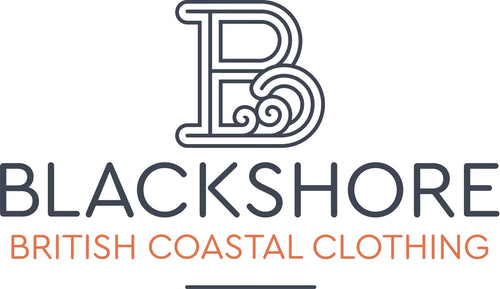
A button, surely, is a button, is a button? Well, it turns out, not quite. Most buttons on most clothes are plastic. And pretty much everybody agrees now that plastic is not such a good thing after all!
At Blackshore we've decided right from the off to not use plastic in any of our products, or in our packaging. So that means no plastic buttons. Potentially a problem. Well it would be, were it not for the revival of the British button making industry, driven pretty much singlehanded by an amazing little company called Courtney & Co (www.courtneyandco.uk).
Button-making in the UK goes back as far the 16th Century, when British-made buttons were traded by the merchant explorers of India, Cathay, the Spice Islands and beyond, in exchange for exotic goods.
The industry flourished for centuries. At its peak, there were literally dozens of button-makers in the UK making millions of buttons each year. By the mid-1960’s the industry was in decline along with huge swathes of British manufacturing. Despite a worldwide reputation for superb quality, the last button making factory, James Grove & Sons Ltd closed in December 2012, after 155 years of family ownership and operation. It was the last of its kind.
And it would likely have stayed that way were it not for the determination of David and Andrea Courtney, who in late 2016 started making buttons and have plans to grow and expand their range to cover more genres, materials and patterns.
The Courtney's ambition is to follow in the footsteps of their predecessors and to make the finest buttons based upon the following guiding principles. These are to:
- use the finest natural materials available;
- employ traditional techniques and processes;
- preserve, restore and revitalise our extensive heritage button collection;
- hone existing skills and train the next generation of skilled button makers;
- observe and practice sustainable, ecological and ethical production;
- promote and champion good, creative design using buttons as a central feature;
- introduce new technology to improve efficiency and standards;
- covet and promote the ‘Made in England’ seal of quality
At Blackshore we applaud these principles. They're are the same core values that we are working by in creating a clothing manufacturing business in Lowestoft.

What's more, the product is fantastic. We're using Courtney buttons, made of Corozo (a very sustainable nut product) on all of our Blackshore clothes.
Corozo was once also known as 'vegetable ivory' because of its density and 'carvability'. The tree from which the Corozo nut comes is the Tagua. it takes 15 years for a Tagua tree to mature: but it will then produce nuts for a hundred years and more. Each year the tree produces 15 large, spiny balls called ‘mococha’ which each contain around 20 small compartments in which half a dozen nuts are hidden: 1,800 nuts per year, enough for many thousands of buttons.
The ‘mococha’ fall to earth quite naturally when they are ripe, it means that there is no human harvesting or cutting of any part of the tree which blissfully lives on regardless to continue growing and producing nuts for years to come. Seen in this light, our Corozo buttons not only ‘grow’ on trees, but they ‘fall’ from trees, too!
Lastly, Corozo is such a valuable crop that in contrast to many rainforests around the world which are being cut down legally as well as illegally, those in Ecuador are being largely maintained as the tagua palm tree’s economic and sustainability features means that it diminishes any need to cut the forests down.

